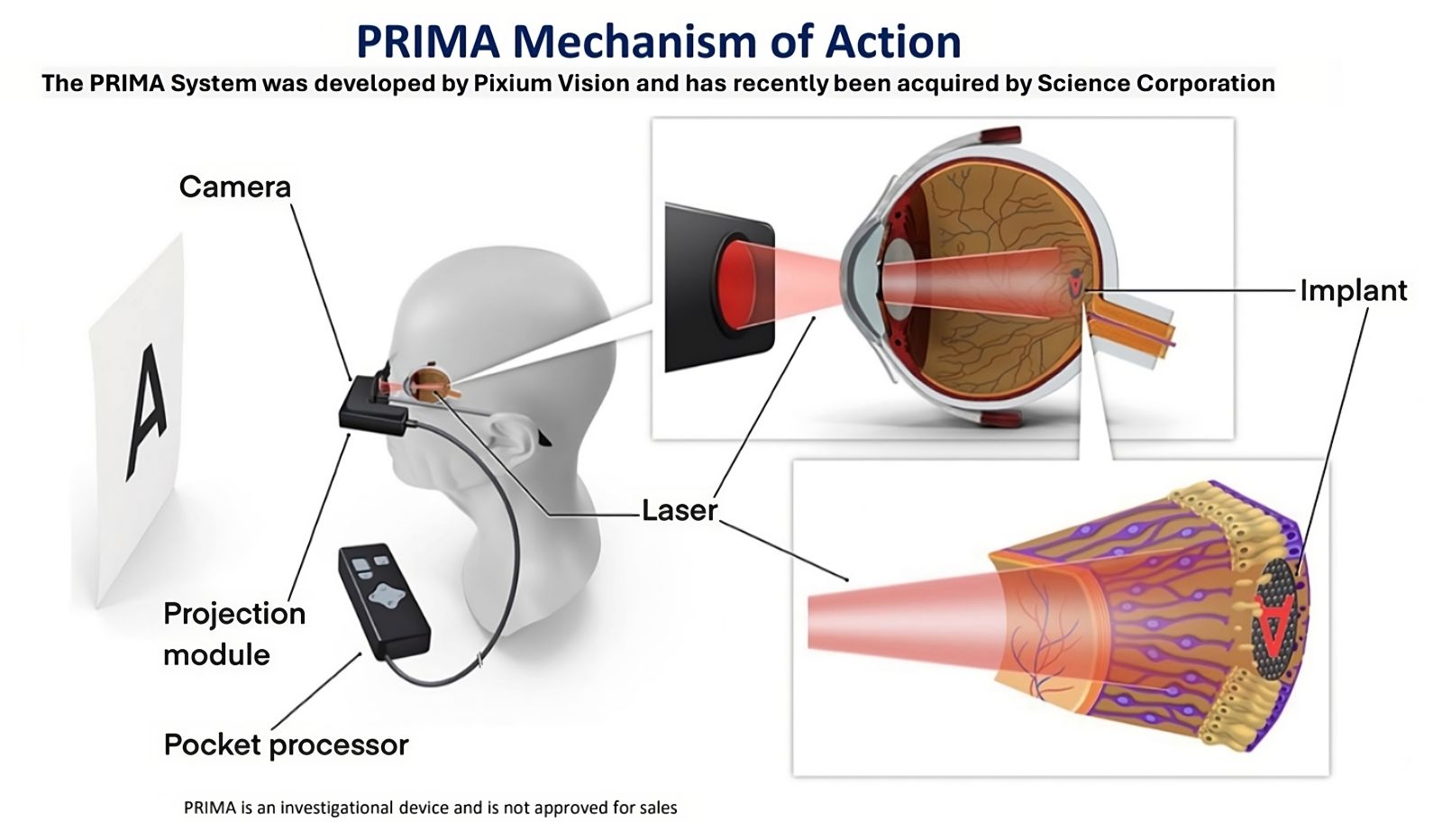This device restores vision to blind people 👁️
Published by Cédric,
Article author: Cédric DEPOND
Source: Science Corporation
Other Languages: FR, DE, ES, PT
Article author: Cédric DEPOND
Source: Science Corporation
Other Languages: FR, DE, ES, PT
Follow us on Google News (click on ☆)

Researchers have developed a retinal implant capable of partially restoring vision in blind patients. This advancement raises unprecedented hopes for those suffering from age-related macular degeneration (AMD).
AMD, which affects millions of individuals, leads to a gradual loss of central vision. The dry and wet forms of the disease significantly impact the quality of life. Geographic atrophy, a form of dry AMD, is particularly devastating, characterized by the degeneration of photoreceptor cells.
The Prima implant, developed by French company Pixium Vision, represents a potential solution to this problem. This device, which works with glasses equipped with a camera, was recently acquired by Science Corporation for commercialization. Clinical trials have been conducted to assess its effectiveness.
During these trials, 38 blind patients received the Prima implant, a subretinal chip that captures infrared rays emitted by the glasses and converts them into electrical impulses to be transmitted to the brain. This process allows a form of vision to be restored, although visual acuity remains at a limited level compared to the norm.

Preliminary results reveal an improvement in the participants' visual acuity. After several months, the average acuity improved from 20/450 to 20/160, allowing some of them to read more letters on a chart. For better understanding of these measurements, 20/450 means that the patient must be 20 feet away (6.1 meters) to recognize an object that a person with normal vision could recognize from 450 feet (137.2 meters).
However, the results vary, with some patients experiencing significant improvements while others saw only modest benefits.
Study leaders, such as Max Hodak from Science Corporation, have expressed their enthusiasm for this advancement. For the first time, the ability to read fluently has been restored, opening new perspectives for the treatment of blindness.
The Prima implant, which combines technology and medicine, could offer a ray of hope to millions of people suffering from vision loss. This promising technology could reach the market in the coming years, offering unprecedented possibilities for people with AMD.